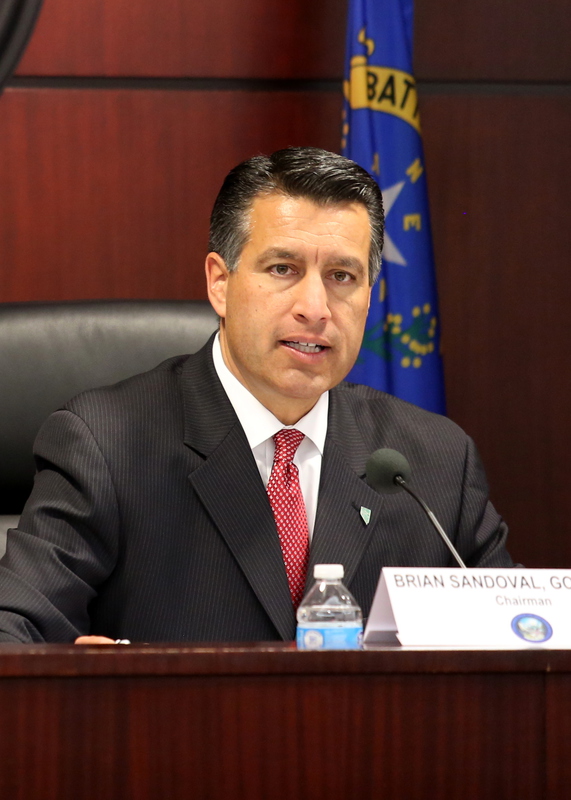






Nevada Attorney General Supports Web Poker BanAdam Laxalt Says He Thinks I-Gaming Should End |
|
|
In a surprising move, Nevada’s top lawyer said he is against online gambling and is in support of federal efforts to ban the activity nationwide.
Nevada Attorney General Adam Laxalt told Nevada-based journalist Jon Ralston this week that he intends to sign a letter that is circulating among state attorney generals that would signal their support for the Sheldon Adelson-funded efforts to “restore” America’s 1961 Wire Act and not only prevent other states from regulating online gaming, but also put a stop to where it’s already happening. Online lotteries would likely receive a carve-out, however.
Nevada is one of three states in the country that have legalized and regulated online casino games. Pennsylvania is close to becoming the fourth, while California and New York are also looking at it.
“Congress spoke on this issue and had the existing Wire Act,” Laxalt said. “And then [U.S.] Attorney General [Eric] Holder issued an opinion a few days before Christmas some years ago and changed that landscape. He changed that landscape without…all the parties that should have been involved to make sure we can keep consumers safe and all this can be done properly. I think in this case we are looking to return it to what the status quo was.”
The comments drew the attention of Nevada Gov. Brian Sandoval, who was the one to sign Nevada’s online poker bill. Sandoval is a former Nevada gaming regulator. He also made history by signing an online gaming compact with Delaware, a liquidity squaring deal that went into effect this year. Both states have small populations, so the benefits of liquidity sharing haven’t been realized yet. New Jersey, the third state with online gaming, operates on its own for now.
According to Ralston, Sandoval issued a statement defending online gaming.
“The gaming industry is changing and in order for Nevada’s businesses to maintain a competitive edge internationally, we must enact policies that allow the industry to meet the demands of a younger, more technologically engaged gamer," Sandoval said. “The groundbreaking online gaming bill previously passed by the legislature provides local businesses with an environment where they can grow and prosper. This measure also ensures our regulatory bodies, which are considered the best in the world, will continue to develop policies that will ensure Nevada remains the global epicenter for gaming development.”
 Sandoval, who is a Republican like Adelson and Laxalt, had even stronger words at the tail end of the statement, saying that he is “very concerned that anyone representing the state’s legal interests would speak out against current state law in our leading industry.”
Sandoval, who is a Republican like Adelson and Laxalt, had even stronger words at the tail end of the statement, saying that he is “very concerned that anyone representing the state’s legal interests would speak out against current state law in our leading industry.”
The chairman and CEO of MGM Resorts, which supports online gaming, unlike Las Vegas Sands Corp., echoed Sandoval’s reaction to Laxalt.
“I very much hope our attorney general doesn’t sign on to that because that literally would be saying I am against the gaming industry in Nevada, I’m against jobs, I’m against social media, I’m against IGT, I’m against the largest employer in the state,” MGM’s Jim Murren told Ralston.
Laxalt’s office earlier this year charged a Nevada poker pro for his involvement with an unlicensed poker site that dealt in bitcoins. It was the first prosecution of its kind in Nevada. Bryan Micon, the poker player, ended up taking a plea deal.
The House Oversight & Government Reform Committee is planning a Dec. 9 hearing on the proposed Internet poker ban. In March, the House Subcommittee on Crime, Terrorism, Homeland Security, and Investigations discussed the same anti-online poker bill from Rep. John Chaffetz (R-Utah). That hearing was described by the Poker Players Alliance as “an exercise in fear mongering” and “an unfortunate waste of everyone’s time.”
 There’s another RAWA proposal in the Senate, one introduced by presidential candidate Lindsey Graham, a Senator from South Carolina, but it hasn’t had a hearing this year.
There’s another RAWA proposal in the Senate, one introduced by presidential candidate Lindsey Graham, a Senator from South Carolina, but it hasn’t had a hearing this year.
The passage of a RAWA version is still not viewed as a likely outcome, given the difficulty of the federal government acting on such a controversial piece of legislation. Numerous groups across the country have voiced concern that RAWA tramples on states’ rights and actually leaves consumers unsafe. Should RAWA actually gain momentum, the New Jersey Congressional Delegation would likely fiercely oppose it.
Adelson has said that online gambling is detrimental to his casino business.
